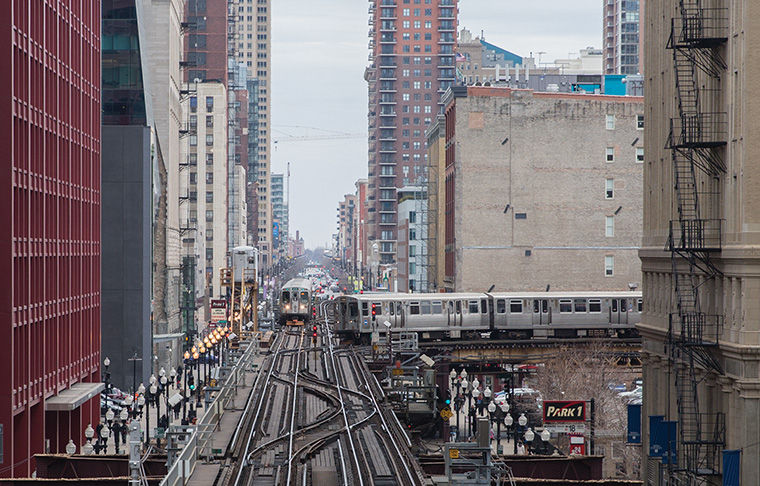Proposed budget cuts will severely affect CTA
Gov. Bruce Rauner’s proposed budget cuts of more than $105 million could impact CTA rehabs and fixes at multiple locations throughout the city, according to press release from the Regional Transportation Authority.
April 2, 2015
BUDGET CUTS TO Chicago Transit Authority finances of more than $130 million proposed by Gov. Bruce Rauner may further stifle CTA construction, take away CTA station improvements, inconvenience riders even more than the current normal delays and possibly spark a fare increase.
These budget cuts would also affect Metra and Pace, according to a Regional Transportation Authority press release dated March 19. Altogether, there could be about $169.5 million in cuts region-wide. The cuts would begin on July 1 and end on June 30, 2016, according to the press release.
The governor’s proposed budget represents losses in three areas: It would “reduce the amount the state matches on total regional sales tax revenues by one-third, representing a $127 million cut from the $380 million that the state had budgeted for fiscal year 2016; eliminate $34 million used to administer the state-mandated free ride and the federally-mandated reduced fare programs for seniors and persons with disabilities; and would eliminate $8.5 million used to operate the federally-mandated ADA paratransit service.”
The paratransit program is a subsidized service for the disabled and
seniors which transports people from their homes and allows them to ride CTA and Metra for free.
The free ride and reduced fare programs cost the RTA $130 mil- lion annually, according to the RTA release, so the funding cut would reduce the budget for those services by approximately 25 percent.
Chris Mooney, director of the Institute of Government and Public Affairs in the Department of Political Science at the University of Illinois, said the cuts could affect more than just CTA riders.
The Active Transportation Alliance, is a nonprofit advocacy organization that helps improve conditions for cyclists, walkers and commuters. ATA Campaign Director Kyle Whitehead does not think these cuts are being handled correctly.
“We recognize that the state is in a difficult financial situation and the governor is faced with making some tough decisions,” Whitehead said.
The cuts would affect all forms of transit in the Chicago system:
elevated trains, both city and sub- urban buses and a Metra commuter rail, according to Whitehead.
He said the impact of the proposed cuts will be severe and if carried out, transit authorities will be forced to make tough decisions, which will hurt commuters.
“Our riders do not want service cuts,” Whitehead said. “They do not want fare increases,”
Jacky Grimshaw, a CTA board member, said government budget cuts are not the right solution because transit is important to the economic stability. Cutting back on the funds that operate the transit systems would make it more difficult for people to get to work, she said.
“You have two kinds of transit riders—those who have other options of transportation such as driving or taking the bus and riders that are dependent that will be hurt,” Grimshaw said.








